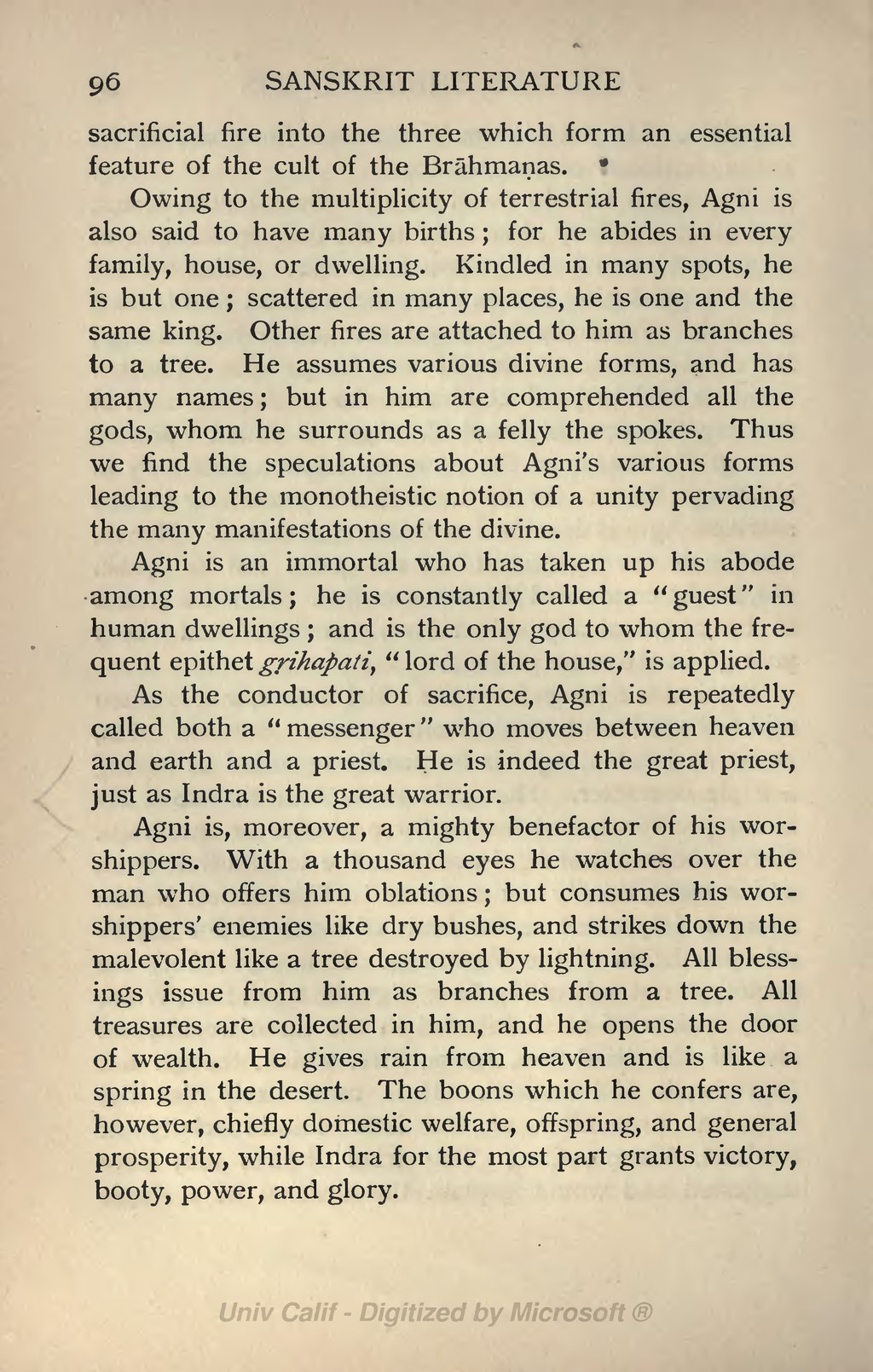sacrificial fire into the three which form an essential feature of the cult of the Brāhmaṇas.
Owing to the multiplicity of terrestrial fires, Agni is also said to have many births; for he abides in every family, house, or dwelling. Kindled in many spots, he is but one; scattered in many places, he is one and the same king. Other fires are attached to him as branches to a tree. He assumes various divine forms, and has many names; but in him are comprehended all the gods, whom he surrounds as a felly the spokes. Thus we find the speculations about Agni's various forms leading to the monotheistic notion of a unity pervading the many manifestations of the divine.
Agni is an immortal who has taken up his abode among mortals; he is constantly called a "guest" in human dwellings; and is the only god to whom the frequent epithet gṛihapati, "lord of the house," is applied.
As the conductor of sacrifice, Agni is repeatedly called both a "messenger" who moves between heaven and earth and a priest. He is indeed the great priest, just as Indra is the great warrior.
Agni is, moreover, a mighty benefactor of his worshippers. With a thousand eyes he watches over the man who offers him oblations; but consumes his worshippers' enemies like dry bushes, and strikes down the malevolent like a tree destroyed by lightning. All blessings issue from him as branches from a tree. All treasures are collected in him, and he opens the door of wealth. He gives rain from heaven and is like a spring in the desert. The boons which he confers are, however, chiefly domestic welfare, offspring, and general prosperity, while Indra for the most part grants victory, booty, power, and glory.
